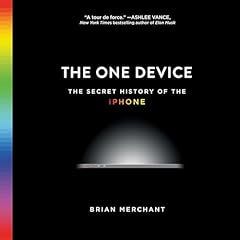
The New Analog
Listening and Reconnecting in a Digital World
No se pudo agregar al carrito
Add to Cart failed.
Error al Agregar a Lista de Deseos.
Error al eliminar de la lista de deseos.
Error al añadir a tu biblioteca
Error al seguir el podcast
Error al dejar de seguir el podcast
 Exclusivo para miembros Prime: ¿Nuevo en Audible? Obtén 2 audiolibros gratis con tu prueba.
Exclusivo para miembros Prime: ¿Nuevo en Audible? Obtén 2 audiolibros gratis con tu prueba.Compra ahora por $14.02
-
Narrado por:
-
Damon Krukowski
-
De:
-
Damon Krukowski
What John Berger did to ways of seeing, well-known indie musician Damon Krukowski does to ways of listening in this lively guide to the transition from analog to digital culture.
Having made his name in the late 1980s as a member of the indie band Galaxie 500, Damon Krukowski has watched cultural life lurch from analog to digital. And as an artist who has weathered the transition, he has challenging, urgent questions for both creators and consumers about what we have thrown away in the process. Are our devices leaving us lost in our own headspace even as they pinpoint our location? Does the long reach of digital communication come at the sacrifice of our ability to gauge social distance? Do streaming media discourage us from listening closely? Are we hearing each other fully in this new environment?
Rather than simply rejecting the digital disruption of cultural life, Krukowski uses the sound engineer's distinction of signal and noise to reexamine what we have lost as a technological culture, looking carefully at what was valuable in the analog realm so we can hold on to it.
Taking a set of experiences from the production and consumption of music that have changed since the analog era - the disorientation of headphones, flattening of the voice, silence of media, loudness of mastering, and manipulation of time - as a basis for a broader exploration of contemporary culture, Krukowski gives us a brilliant meditation and guide to keeping our heads amid the digital flux. Think of it as plugging in without tuning out.
©2017 Damon Krukowski (P)2017 Audible, Inc.Los oyentes también disfrutaron:




















A+ non-fiction
Se ha producido un error. Vuelve a intentarlo dentro de unos minutos.
Would you consider the audio edition of The New Analog to be better than the print version?
I found the opening paragraph (possibly the forward?) to be hilariously ironic, since I was listening to it as a digital audio file, instead of reading it as a paper book. I think there are definitely strong academic benefits to reading books with one's eyes, over listening to them. However, after more than forty years of avid reading with my eyes, they are growing weak. I find it very difficult to read in anything less than bright light, even with my strong reading glasses. And, now that I am listening when I commute and when I work in the kitchen and such, I am "reading" a lot more than I ever did visually. Audio is better for me. I would not go so far as to say it is necessarily better for everyone. And I definitely feel that people who can still see well, especially the young and uneducated, will benefit greatly from actually reading words with their eyes, whether on paper or a screen.What about Damon Krukowski’s performance did you like?
I like his voice, but I particularly like that the same brilliant person who organized and wrote diown this information was also the voice reading it. When the author is capable of good narration, I definitely like to hear the author read her or his own work.Any additional comments?
I thought that i knew a fair amount about digital and audio recording, having been a hobbyist in this area most of my life, and having worked for a few years in commercial radio. However, I was surprised at how very much I learned from this wonderful title. Thank you so much, Damon, for sharing your insights.Very Interesting!
Se ha producido un error. Vuelve a intentarlo dentro de unos minutos.
Still, if you want a quick primer on audio technology, this is a good place to start.
Even Pop Stars can become grumpy old men...
Se ha producido un error. Vuelve a intentarlo dentro de unos minutos.


